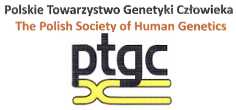Cardiology

We particularly invite people with cardiovascular problems and previously healthy people with a family history of risk factors such as:
- Very high cholesterol levels, which may be caused by a family history of hypercholesterolaemia; in particular, high concentrations of the LDL cholesterol fraction, should be of concern. There are two major genetic reasons - mutations in the LDL receptor gene and in apolipoprotein B-100. They are tested in frame of the hypercholesterolaemia panel, which also includes the PCSK9 and LDLRAP1 genes. The test code is FHP-NGS.
Younger people with high blood cholesterol levels are particularly encouraged to have this test, as symptoms of the disease, such as premature atherosclerosis, can appear between the ages of 40 and 45 if untreated.
- Venous thromboembolism, which can manifest as increased blood clotting, deep vein thrombosis, stroke or pulmonary embolism. In addition to genetic predisposition, other factors are known to increase the risk of these conditions. These include immobility, surgery, trauma, cancer, pregnancy and lying-in, autoimmune diseases, use of contraceptives or hormone replacement therapy, and smoking.
- Abnormalities of myocardial structure and function associated with cardiomyopathy or vascular abnormalities manifested by thoracic aortic dissections and aneurysms.
Hypertrophic cardiomyopathy is one of the most common genetic diseases in cardiology and the most common cause of sudden death in children and young adults. There are many genes associated with this condition. We have included the analysis of 33 most commonly studied genes in these conditions under the collective name of hypertrophic and dilated cardiomyopathy (test code KP-ACMG-NGS) and a broad panel of 80 genes associated with hypertrophic cardiomyopathy, dilated cardiomyopathy and left ventricular non-compaction cardiomyopathy (LVNC) - test code KP-NGS.
In 2023, the European Medicines Agency registered mavacamten (Camzyos), the first cardiac myosin inhibitor acting on the primary pathophysiology of hypertrophic cardiomyopathy, with an indication in the treatment of hypertrophic cardiomyopathy with left ventricular outflow tract narrowing in adults. Proper administration of the drug requires the determination of cytochrome P450 2C19 activity - test code CYP2C19-1.
Aneurysms and thoracic aortic dissections - our genetic testing offer covers 24 genes, including ACTA2, TGFBR2, TGFBR1 and MYH11 (test code TAAD-NGS). These tests can help you assess your risk of thoracic aortic dissection or aneurysm and assist your doctor in further patient management and treatment.
If you are taking (or about to start) certain antihypertensive drugs (e.g. losartan, metoprolol) and/or anticoagulants (warfarin, clopidogrel), you may also want to consider genetic testing to see how they are metabolised in the body. This information will help your doctor choose the right type and dose of medication.
Tests related to our individualised treatment response include:
- Assessment of cytochrome P450 2C19 activity prior to treatment with mavacamten and clopidogrel – test code CYP2C19-1
- Assessment of cytochrome P450 2C9 activity for treatment with candesartan, irbesartan, losartan or warfarin - test code CYP2C9-1
- Assessment of cytochrome P450 2D6 activity for treatment with carvedilol, codeine, metoprolol, propranolol or timolol - test code CYP2D6-1








